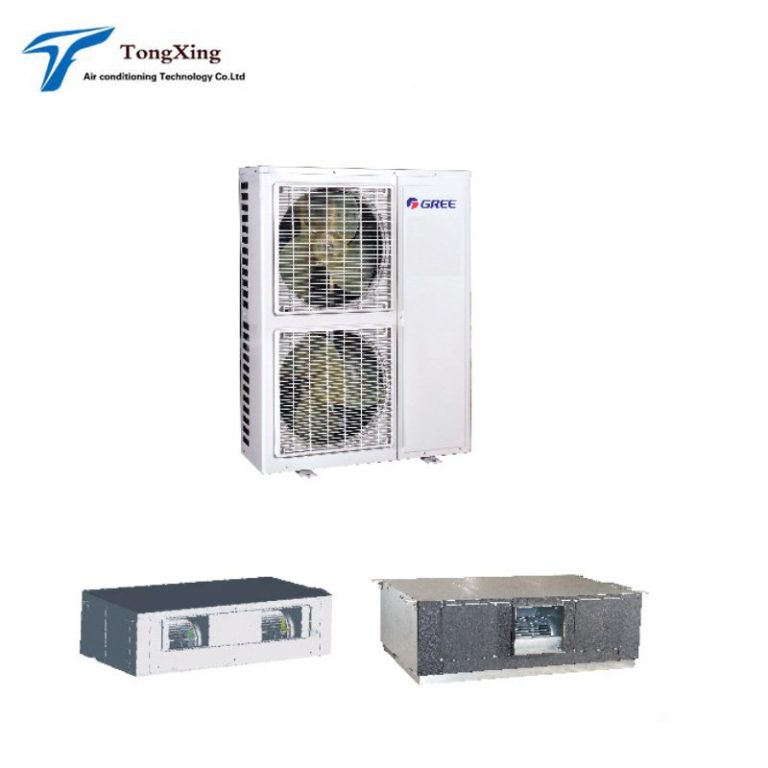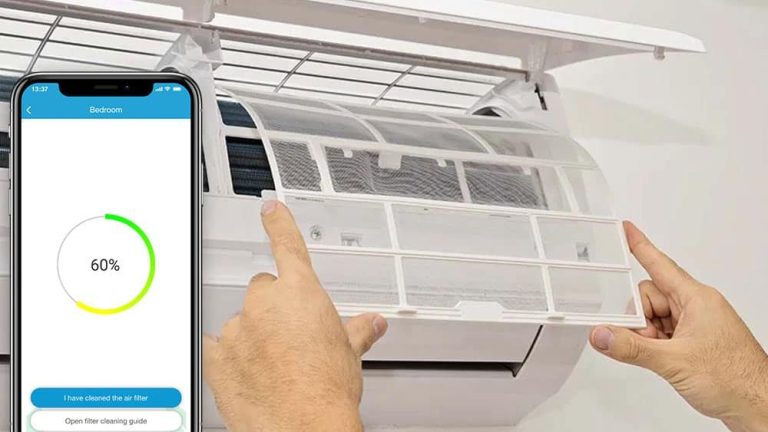How Big Air Conditioner Do I Need? Expert Guide To Choosing The Right Size
To determine the right size of air conditioner for your space, factors such as room size, insulation, and climate need to be considered. You can estimate the necessary cooling capacity by calculating the square footage of the area and using a BTU (British Thermal Unit) chart or calculator provided by manufacturers. It’s also recommended to consult with a professional for an accurate assessment.
Want to keep your home cool and comfortable during those scorching summer months? It all starts with one vital question: how big of an air conditioner do you really need? Imagine this scenario: you’ve just purchased a state-of-the-art air conditioning unit, eagerly anticipating the relief it will bring to your home. But once it’s installed, you realize something is off.
Despite running at full blast, your new AC fails to cool your space adequately, leaving you sweaty and frustrated. What went wrong? The answer lies in finding the perfect fit for your specific space.
And that’s where determining the right size of your air conditioner becomes crucial. You see, air conditioners are not one-size-fits-all. If you choose a unit that is too small, it will struggle to cool your room, leaving you sweltering in the heat.
On the other hand, an air conditioner that is too large can result in wasted energy and unnecessarily high utility bills. But fear not, because unraveling the mystery of ‘how big air conditioner do I need’ is simpler than it may seem. By understanding the key factors, such as the size of your room, insulation, and climate conditions, you can make an informed decision that will keep you comfortable and save you money in the long run.
Factors to Consider When Determining the Size of Your Air Conditioner
Choosing the right size air conditioner for your space is crucial to ensure optimal cooling efficiency and energy consumption. It’s not just about the physical dimensions of the unit; several factors come into play when determining the size of the air conditioner you need. Let’s delve into these factors:
1. Room Size
The size of the room you want to cool is one of the primary considerations when determining the size of your air conditioner. Larger rooms require air conditioners with a higher cooling capacity, while smaller rooms can make do with smaller units. To get an accurate measurement, calculate the square footage of the room by multiplying its length and width.
Insulation
The level of insulation in your room affects its cooling requirements. Well-insulated rooms retain cool air better, reducing the workload on your air conditioner. On the other hand, poorly insulated rooms allow cool air to escape, making your AC work harder. Consider the insulation factor when determining the size of your unit.
Ceiling Height
Rooms with higher ceilings tend to have more air volume that needs to be cooled. As a result, taller ceilings may require a larger air conditioner to adequately cool the space.
2. Climate Conditions
Climate plays a significant role in determining the size of the air conditioner you need. Hotter climates require air conditioners with higher cooling capacities, as they need to work harder to combat the heat. On the other hand, milder climates may require smaller units to achieve the desired cooling effect.
Temperature Range
If you live in an area with extreme temperature ranges, such as very hot summers or extremely cold winters, you need to consider both heating and cooling requirements. In such cases, it might be beneficial to opt for a larger air conditioner that can handle both temperature extremes.
Humidity Levels
High humidity levels can make a space feel even hotter and more uncomfortable. If you live in a humid climate, it’s important to choose an air conditioner that has dehumidifying capabilities, as this will significantly enhance your comfort.
3. Number of Occupants
The number of people regularly occupying the space affects the cooling requirements. A room with several occupants will generate more heat, requiring a larger air conditioner to compensate for the additional heat load.
4. Heat-Producing Appliances
Consider the presence of heat-producing appliances in the room, such as computers, refrigerators, or large televisions. These appliances generate heat and contribute to the overall cooling load. If your room houses several heat-producing appliances, you may need a larger air conditioner to offset the extra heat.
How to Calculate the Cooling Capacity You Need
Now that you are aware of the factors that influence the size of the air conditioner you need, let’s look at how to calculate the cooling capacity required for your specific space:
1. Use the British Thermal Unit (BTU) Measurement
The cooling capacity of an air conditioner is typically measured in British Thermal Units (BTUs). A BTU is the amount of heat needed to raise the temperature of one pound of water by one degree Fahrenheit. The higher the BTU rating of an air conditioner, the greater its cooling capacity.
To determine the BTU rating you need, you can use the following general guideline:
- For rooms up to 150 square feet, opt for an air conditioner with a BTU rating of 5,000-6,000.
- For rooms between 150-250 square feet, choose an air conditioner with a BTU rating of 6,000-8,000.
- For rooms between 250-300 square feet, select an air conditioner with a BTU rating of 8,000-10,000.
- For rooms between 300-350 square feet, go for an air conditioner with a BTU rating of 10,000-12,000.
- For rooms between 350-400 square feet, consider an air conditioner with a BTU rating of 12,000-14,000.
- For larger rooms, you may need to consult a professional HVAC technician to determine the appropriate BTU rating.
2. Account for Other Factors
Keep in mind that the BTU rating mentioned above is a general guideline. You should also consider the other factors mentioned earlier, such as insulation, climate, number of occupants, and heat-producing appliances. Adjust the BTU rating accordingly based on your specific circumstances.
3. Seek Professional Advice
If you’re unsure about calculating the cooling capacity yourself, or if you have unique circumstances that require a more precise calculation, it’s always a good idea to seek the advice of a professional HVAC technician. They can conduct a thorough assessment of your space and recommend the most suitable air conditioner size.
The Consequences of an Incorrectly Sized Air Conditioner
Choosing the wrong size air conditioner can have several undesirable consequences. Here are some of the potential issues:
1. Inefficient Cooling
If your air conditioner is too small for your space, it will struggle to cool the room effectively. The unit will run continuously, resulting in poor cooling performance and discomfort.
2. High Energy Consumption
An air conditioner that is too large for your space will cool the room too quickly, causing frequent on/off cycles. This constant cycling not only wastes energy but also increases your utility bills.
3. Increased Humidity
An undersized air conditioner may fail to adequately remove moisture from the air, leading to increased humidity levels and a damp, uncomfortable environment.
4. Shortened Lifespan
An air conditioner that is constantly overworked due to inadequate cooling capacity will experience increased wear and tear. This can lead to premature breakdowns and a shorter lifespan for the unit.
Choosing the right size air conditioner is crucial for ensuring optimal cooling performance, energy efficiency, and comfort in your home. By considering factors such as room size, insulation, climate, number of occupants, and heat-producing appliances, you can make an informed decision and select the perfect air conditioner for your specific needs. Remember, when in doubt, it’s always best to consult with a professional HVAC technician who can provide expert guidance tailored to your unique circumstances.
Portable Air Conditioners – Why you shouldn't like them
What size air conditioner do I need for my room?
Can I use a smaller air conditioner for a bigger room?
What happens if I use a bigger air conditioner for a smaller room?
Should I consider other factors besides room size?
Do I need a professional to determine the right size air conditioner?
Final Words: Choosing the Right Size Air Conditioner for Optimal Cooling and Energy Efficiency
In conclusion, choosing the right size air conditioner is essential for efficient cooling and energy consumption. Factors such as room size, insulation, climate conditions, number of occupants, and heat-producing appliances all play a role in determining the size of the air conditioner you need.
To calculate the cooling capacity, you can use the BTU measurement and adjust it based on other factors. It is important to note that selecting an incorrectly sized air conditioner can lead to inefficient cooling, high energy consumption, increased humidity, and a shortened lifespan for the unit.
Therefore, it is advisable to seek professional advice from an HVAC technician if you are unsure or have specific circumstances. By considering these factors and making an informed decision, you can ensure optimal cooling performance, energy efficiency, and comfort in your home.






